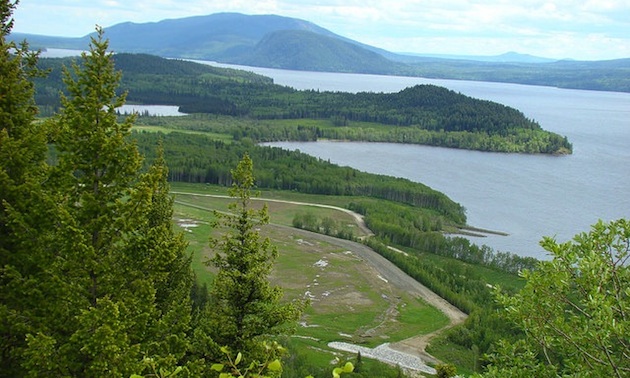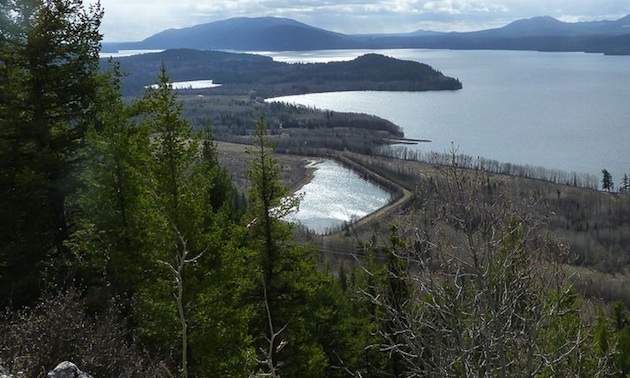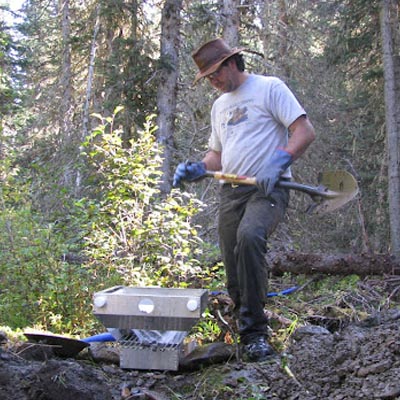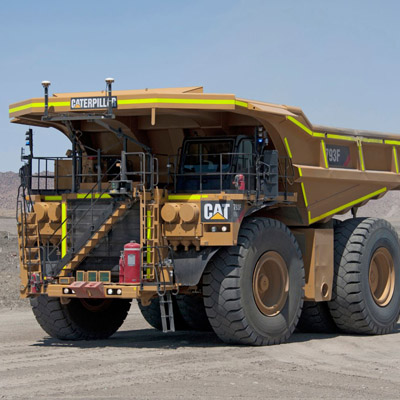BC mine reclamation committee to hold June get-together
About 600 people are expected for the symposium in Vancouver

Teck Metals Ltd. received the 2012 British Columbia Jake McDonald Mine Reclamation Award for outstanding reclamation achievements at the Pinchi Mine, which produced mercury from 1940 to 1944 and from 1968 to 1978. — Photos courtesy of BC TRCR/Teck Metals Ltd.
The 39th annual symposium of the British Columbia Technical and Research Committee on Reclamation (TRCR) is taking place June 1 to 3, 2015, at the Hyatt Regency Hotel in Vancouver.
This year's symposium is occurring in conjunction with Mine Closure 2015, a forum for exchanging news and views on mine closures around the world. About 600 people are expected to attend the event.
Although low in profile, the TRCR has been in existence for almost 40 years.
“A joint advisory committee made up of the government and the Mining Association of BC was founded in 1976,” said TRCR vice chairman Jonathan Buchanan. “There were three subcommittees, one of which was the technical and research subcommittee. The subcommittee became a standalone organization in 1977, with a mandate to develop and share at symposia best practices in environmental protection, mine reclamation and closure and sustainability initiatives.”
Chair Nicole Pesonen said TRCR is a diverse group of industry, consultants, government, academics, environmental groups and First Nations.
“The committee originated in response to what was perceived at the time as a need in B.C. for more government-industry communication in the area of environmental protection and reclamation associated with mining,” Pesonen said. “Mine reclamation is important to not just the mining and mineral exploration industries, but to all British Columbians.”
The TRCR's main activity is sponsoring the annual British Columbia Mine Reclamation Symposium. The committee also sponsors single-issue symposia and studies. In 1985, for example, it sponsored a preliminary study of the practice of re-sloping waste dump faces. Another study that year focused on materials handling and cost.
In 1986, the committee sponsored an international rock drain symposium that brought attendees from the United States, France, Australia and the Soviet Union. In 1990, it established a special project to improve the environmental management of cyanide, and in July 1992 published a Technical Guide for the Environmental Management of Cyanide in Mining. As a follow-up, the TRCR hosted the Cyanide Gold Heap Leach Workshop in 1995.

The Pinchi Lake site before reclamation. — Photos courtesy of BC TRCR/Teck Metals Ltd.
Reclamation awards
To promote excellence in reclamation, every year the committee presents the British Columbia Mine Reclamation Award, as well as awards for excellence in mine reclamation in metal mines, coal mines, placer operations, sand and gravel operations, industrial mineral operations and mineral exploration.
To encourage student participation in reclamation-related fields, the committee awards the Jake McDonald Memorial Scholarship, which is given to support a student or students in a scientific field related to reclamation. The scholarship was established in honour of Jake McDonald, former senior reclamation inspector in the Ministry of Energy, Mines and Petroleum Resources.
At its 38th annual banquet at the Mine Reclamation Symposium, which took place in September 2014 in Prince George, the TRCR awarded the Jake McDonald Scholarship for Mine Reclamation to Rachel Pugh and Sara Sparks, two Master of Science candidates at the University of Northern BC. Pugh is researching how to create granular structure in such non-soils as mine tailings by using a co-pyrolysis process with organic matter and mine tailings. Sparks's research at Highland Valley Copper uses mountain bluebirds and tree swallows as bio-indicators of self-sustaining reclaimed ecosystems.
The Tony Milligan Book Award is presented to the author or authors of the best paper presented in the previous year that exemplifies the most practical aspects of reclamation. In 2014 the award was presented to Patrick Allard, Randy Baker and Cheryl Mackintosh of Azimuth Consulting Group Partnership for their paper from the 37th annual symposium called Use of ecological risk assessment to guide remediation at the Teck Pinchi Lake mercury mine.
A culture of reclamation
Thanks to British Columbia's vast mineral resources, many mines have been opened, operated and then closed in the province over the years.
Since 1969, mining companies operating in B.C. have been required by law to reclaim all lands disturbed by mining. Later on, British Columbia became the first province to extend this policy to mineral exploration sites.
The provincial government requires companies to post a reclamation security bond with the Ministry of Natural Resource Operations before they can start mining or exploration work at any site. The purpose of the bond is to ensure that the provincial taxpayer doesn't become responsible for the costs of reclamation. The amount of the bond is returned to the company after it has reclaimed the land.
Since the 1969 legislation was brought in, approximately 45,412 hectares, or one-half of one per cent of B.C.’s 95-million-hectare land mass, has been disturbed by major metal and coal mines. Of this, approximately 19,422 hectares, or 42 per cent, has been reclaimed.
Public and private reclamation efforts have been taking place on some mine sites with documented safety or environmental water quality problems that were closed before the 1969 legislation, such as the Britannia and Mount Washington mines.
Since 2004, the Ministry of Natural Resource Operations (formerly the Ministry of Agriculture and Lands) has undertaken remediation at 58 historic mines sites across B.C. and remediation is either underway or completed.




